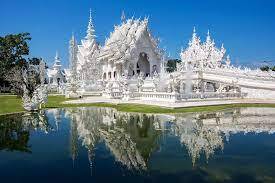Despite being a small island, Sri Lanka is the epitome of enthusiasm for large celebrations. As a result of its diverse religious and ethnic composition, Sri Lanka appears to be perpetually commemorating an occasion. There are a number of festivals in Sri Lanka, that are celebrated greatly.
Numerous celebrations are centered on the Buddhist lunar calendar, and every individual one holds a unique importance for the indigenous population. One advantage of having a local representative is that they have personally experienced these festivals their entire lives and can therefore offer genuine insight into the customs and activities that occur.
A summary of what to anticipate in Sri Lanka tour packages throughout the year is provided below.
Festivals in Sri Lanka
Festivals are loved by everyone from kids to elders. It is that time when everyone reunites and celebrates it with utter joy and happiness, Festivals are always entertaining and fun!
And Sri Lanka boasts it beautifully and elegantly. The country celebrates various festivals and events. Here’s a list of Sri Lanka festivals 2023–
Duruthu Perahera-
An important Buddhist holiday known as Duruthu Perahera is observed in January in Sri Lanka to honor Lord Buddha’s initial visits to the nation. During the festival, musicians, traditional dancers, and exquisitely decorated elephants parade through Kelaniya’s streets. At the Kelaniya Raja Maha Vihara, one of Sri Lanka’s holiest Buddhist temples, devotees pay their respects. Devotees and pilgrims from all over the country gather at the Kelaniya Raja Maha Vihara, a sacred Buddhist temple, to pay their respects and seek blessings during this auspicious occasion.
Thai Pongal-
A colorful and culturally significant celebration that marks the beginning of the harvest season and expresses thanks to the sun god for a bountiful crop, is mostly observed by the Tamil community in Sri Lanka. Usually held in January, during the Tamil month of Thai, which ends with the winter and the end of summer, this festival takes place. Thai Pongal celebrations revolve around the preparation of a unique dish known as “Pongal.” Made with recently harvested rice, lentils, jaggery, and a variety of spices, it is a tasty and nourishing rice dish. Pongal cooking is a group activity where families and friends get together to cook the meal in attractive clay pots, frequently outside.
Independence Day-
Every year on February 4th, Sri Lanka celebrates Independence Day, a historic day with immense historical and patriotic significance for the country. This day in 1948 saw Sri Lanka win its freedom from British colonial rule, resulting in a new era of self-governance and ending a period of foreign dominance. Around the nation, a variety of occasions and activities are held in honor of the celebrations. The national flag is usually raised and the national anthem is sung to start the day. Official events are held in the nation’s capital, Colombo, and are open to the public, dignitaries, and government representatives.
Navam Perahera-
The main attraction of the Navam Perahera is a magnificent parade that attracts both locals and visitors as it passes through Colombo’s streets. With its elaborately decorated elephants, traditional dancers, drummers, and other cultural performers, the parade is a breathtaking sight. Carefully dressed in colorful decorations, the elephants are the main attraction of this parade and represent admiration. The whole parade reflects profound spirituality and cultural richness, and the rhythmic beats of traditional drums and the elegant dancers’ movements create an entrancing atmosphere.
Maha Shivaratri-
Which literally means “Great Night of Shiva,” is a 24-hour period during which followers of Shiva visit temples, carry out ceremonial tasks, and engage in deep meditation and prayer. The festival, where believers seek Lord Shiva’s blessings for spiritual development, inner peace, and the removal of obstacles, is a symbol of profound spiritual significance. Sri Lankans gather to celebrate at the Pashupatinath Temple in Colombo as well as a number of other Shiva temples around the nation. Devotees present the Shiva Lingam, a revered image of Lord Shiva, with milk, honey, water, and bilva leaves.
Love Sri Lanka Festival-
A cultural event, the “Love Sri Lanka Festival” captures the spirit of harmony, variety, and patriotism in Sri Lanka. It may not be as well-known as some of the nation’s traditional religious celebrations, but because it focuses on encouraging harmony, peace, and understanding among the various ethnic and religious groups in the country, it has a particular place in the hearts of Sri Lankans. This festival usually showcases a variety of aspects of Sri Lankan culture with a wide range of musical acts, dance performances, art exhibitions, and culinary treats.
Sinhala & Tamil New Year-
Known as “Aluth Avurudu” in Sinhala and “Puthandu” in Tamil, the Sinhala and Tamil New Year is one of the most eagerly awaited and extensively observed cultural celebrations in Sri Lanka. By custom, it is observed on April 13th or 14th, which is the start of the new year according to the Sinhala and Tamil calendars. Along with these traditions, different traditional games and events are arranged, bringing communities together in celebration. Examples of these include tug-of-war, oil lamp competitions, and avurudu kumari, or New Year beauty pageants.
CMB Street Aurudu Shopping & Food Festival-
During the festival, Colombo’s streets are transformed into a bustling, vibrant marketplace where locals and visitors can take advantage of a variety of cultural and modern experiences. The festival is a fun and inclusive celebration that brings together two essential elements: food and shopping. Stalls offering a range of merchandise, such as apparel, accessories, home goods, and customary New Year decorations, line the streets. As a beloved tradition in Sri Lanka, it’s a great chance for people to buy new clothes and other items to welcome in the New Year.
Vesak Poya-
One of the most important and highly respected Buddhist holidays observed in Sri Lanka and other Buddhist nations is Vesak Poya.. It honors the birth, enlightenment, and death (parinirvana) of Lord Buddha and takes place on the full moon day of the month of Vesak, which usually falls in May. Buddhist temples all throughout the nation are exquisitely decorated with vibrant lanterns, lights, and decorations for Vesak Poya, which creates a calm and enchanting ambiance. At temples, devotees gather to make offerings, burn oil lamps, pray, and practice meditation.
Poson Festival-
Poson Poya, another name for the Poson Festival, is a major Buddhist celebration that is highly culturally rich and observed in Sri Lanka. It occurs on the day of the full moon in the month of Poson. Temples and other hallowed places are illuminated with vibrant lights and decorations as part of the celebrations, fostering a calm and spiritual atmosphere. These locations are visited by devotees who participate in religious rituals, light oil lamps, and present flowers. The lighting of lanterns and pandols, thematic displays depicting significant events from the life of Lord Buddha, is an attractive festival.
Conclusion
Sri Lanka’s religious harmony, cultural diversity, and strong sense of community are all on display during these festivals. These are times when people gather to honor their spirituality and heritage, celebrate, and come together. All of these festivals in Sri Lanka and cultures make it a beautiful place to visit.












